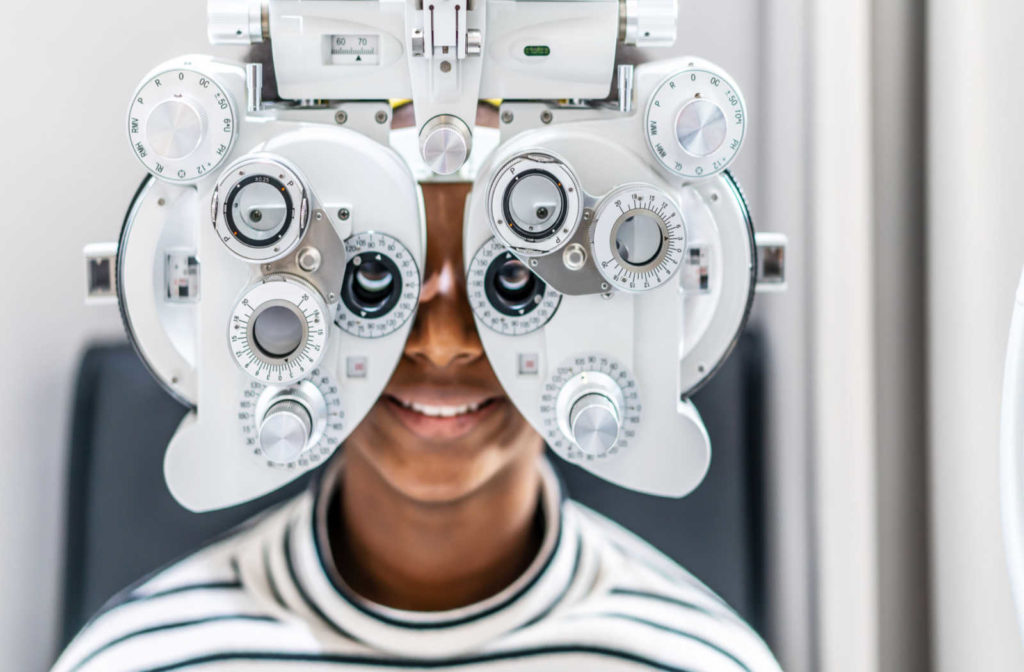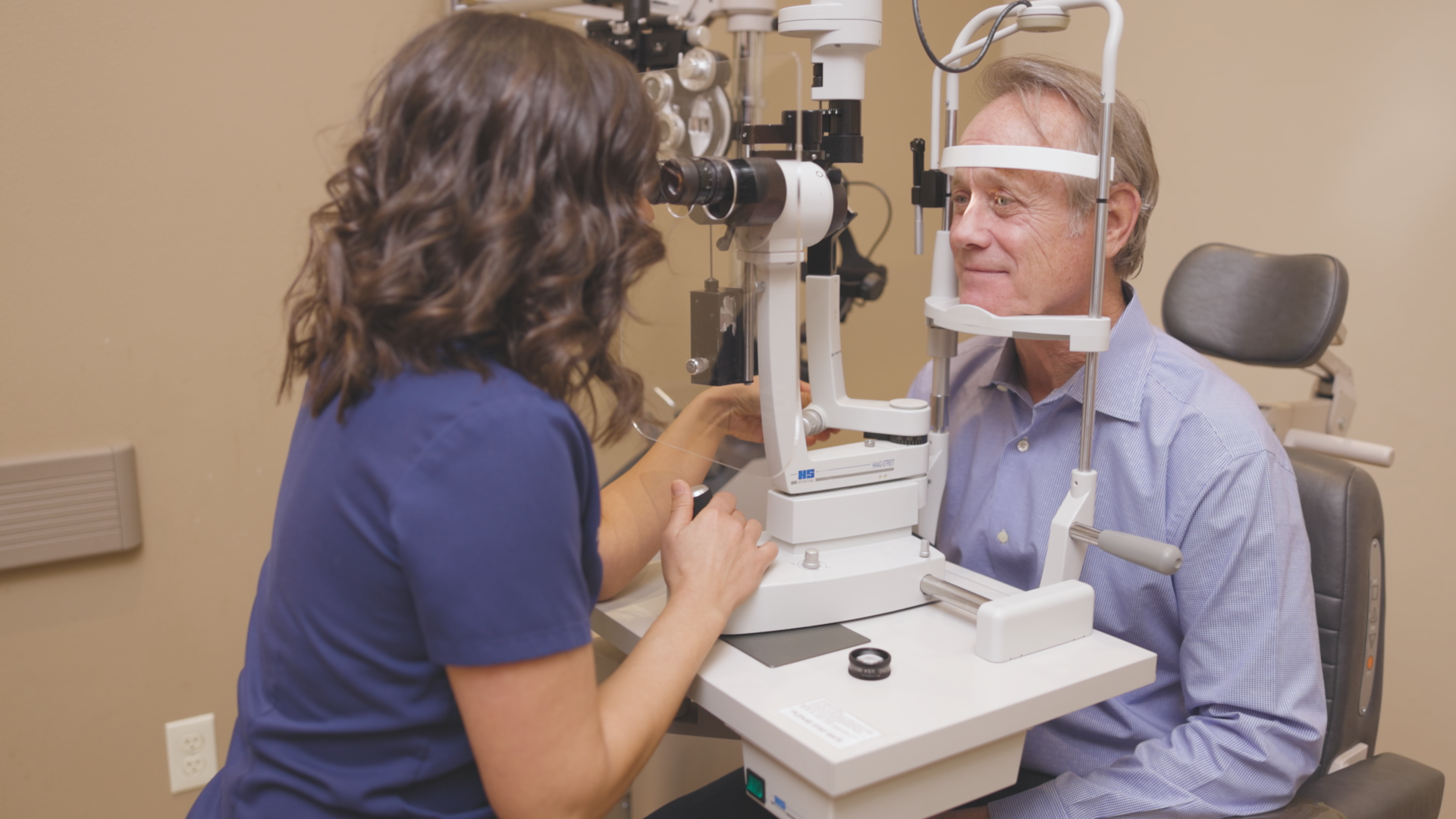Recognizing the Role of Your Eye Doctor in Keeping Vision
Recognizing the Role of Your Eye Doctor in Keeping Vision
Blog Article
Recognizing the Comprehensive Role of an Eye Doctor in Modern Eye Treatment
With improvements in modern technology and a boosting focus on preventive care, optometrists are integral in detecting and taking care of chronic eye problems, while additionally engaging in very early condition detection. Just how do these duties converge with their duty in promoting overall eye health and wellness, and what does this mean for individual end results in a collaborative medical care atmosphere?
Expanded Scope of Method
In current years, the duty of optometrists has progressed significantly, with several experts now accepting an expanded range of practice that extends past standard eye evaluations. Their duties now include a vast array of services, consisting of suggesting drugs for eye problems, taking care of chronic eye diseases, and doing small surgical procedures.
Additionally, eye doctors are now a lot more involved in collaborative care, working carefully with eye doctors, primary care doctors, and various other medical care specialists to guarantee all natural individual care. This interprofessional collaboration is essential in managing intricate situations that call for a multidisciplinary method. Furthermore, optometrists are playing a critical function in public health and wellness campaigns, such as vision screenings and eye health and wellness education, targeted at boosting community wellness results.
The broadened range of method for optometrists not just enhances their capacity to give thorough treatment yet also resolves the growing demand for easily accessible and reliable eye treatment solutions, contributing to general healthcare renovations.
Early Illness Detection
Early detection of eye conditions is increasingly becoming a prime focus in the increased duty of eye doctors. As primary eye care companies, optometrists are uniquely positioned to identify very early indicators of ocular problems such as glaucoma, macular degeneration, diabetic retinopathy, and cataracts. This pivotal role is critical, as very early diagnosis can substantially improve the management and diagnosis of these problems, possibly avoiding vision loss and improving person end results.
Optometrists employ thorough eye assessments to find subtle adjustments in vision and eye wellness. These examinations typically consist of assessments of visual skill, intraocular stress, and retinal wellness. The ability to identify early signs of systemic health concerns, such as hypertension and diabetes mellitus, with eye signs additionally emphasizes the relevance of regular eye exams. Early intervention is not only useful in preserving vision however additionally in lowering healthcare expenses related to advanced illness treatments.
In addition, eye doctors play an essential role in client education and learning, stressing the value of routine eye assessments as part of total wellness upkeep. By promoting a proactive technique to eye care, eye doctors add considerably to public health, guaranteeing diseases are captured and taken care of efficiently before they can progress.
Advanced Diagnostic Strategies
Advanced analysis techniques have actually transformed the technique of optometry, making it possible for professionals to identify and keep an eye on eye conditions with extraordinary accuracy. Technologies such as optical coherence tomography (OCT) offer high-resolution, cross-sectional images of the retina, helping with early discovery of conditions like glaucoma and macular degeneration.
One more crucial advancement is electronic retinal imaging, which captures extensive sights of the retina making use of high-def cameras. This innovation is vital in identifying changes in retinal structure in time, thereby helping in the monitoring of conditions like diabetic retinopathy. Visual field screening, improved by computer-aided systems, permits for specific mapping of a patient's area of vision, important in diagnosing and tracking glaucoma development.
Corneal topography, another notable diagnostic tool, generates topographic maps of the cornea's surface. This is especially beneficial in fitting get in touch with lenses and planning refractive surgical procedure. These innovative diagnostic strategies jointly make it possible for optometrists to offer proactive, targeted treatment, making certain better client end results and enhancing their essential role in eye health management.
Managing Persistent Eye Conditions
Managing chronic eye problems is a cornerstone of optometric treatment that requires a comprehensive understanding of different eye conditions and their lasting implications. Optometrists play a critical function in surveillance, diagnosing, and handling conditions such as glaucoma, diabetic person retinopathy, and age-related macular degeneration. These problems, if left neglected, can lead to substantial visual disability or blindness, highlighting the crucial relevance of ongoing treatment and management.
Optometrists employ a variety of analysis tools, consisting of optical comprehensibility tomography (OCT), aesthetic area testing, and fundus photography, to examine the development of these persistent problems. By very closely keeping track of adjustments in eye health and wellness, eye doctors can adjust therapy strategies to mitigate disease progression. This may involve prescribing drugs, advising lifestyle modifications, or collaborating with eye doctors for why not look here medical interventions when necessary.

Role in Preventive Treatment
Preventative treatment is a fundamental facet of optometry that concentrates on keeping eye health and wellness and preventing the start of eye conditions. Eye doctors play a vital duty in very early detection and prevention, utilizing normal eye examinations to recognize threat factors and subtle changes in ocular health. Optometrist Chino. These assessments are not simply regarding vision modification yet incorporate a comprehensive analysis of eye functions and frameworks, allowing the identification of problems such as glaucoma, cataracts, and macular deterioration at a beginning
Along with diagnostics, optometrists educate people on lifestyle options that advertise eye health and wellness, such as appropriate nourishment, UV defense, and the significance of regular eye examinations. They recommend on the proper use of electronic gadgets to avoid digital eye pressure, a growing worry in the digital age. Optometrists also offer assistance on protective eyewear for entertainment and job-related tasks, minimizing the threat of injury.
Precautionary eye care includes systemic health and wellness issues that materialize in the eyes, such as diabetic issues and high blood pressure. By working together with other medical care professionals, optometrists contribute to holistic person treatment, highlighting the interconnectedness of eye and systemic wellness. This positive approach is important in guarding aesthetic acuity and general well-being.
Verdict
Optometrists now occupy a critical function in modern-day eye treatment, defined by an expanded extent that consists of detecting and taking care of persistent eye problems, suggesting drugs, and performing small operations (Eye Doctor). Their competence in early illness discovery important link is improved by sophisticated analysis strategies such as optical coherence tomography and electronic retinal imaging. By highlighting preventive treatment and individual education, optometrists add considerably to general eye health and wellness, working together with various other health care experts to ensure extensive and effective client results

In addition to diagnostics, eye doctors inform clients on lifestyle choices that promote eye health and wellness, such as correct nourishment, UV protection, and the relevance of routine eye that site exams.Precautionary eye care prolongs to systemic wellness problems that manifest in the eyes, such as diabetes mellitus and hypertension.Optometrists now inhabit an essential function in contemporary eye care, identified by a broadened scope that includes diagnosing and handling persistent eye problems, recommending medicines, and performing small surgical procedures.
Report this page